|
Words by: Dr. Sindhuja Devanapally Edited by: Dr. Lucie Yammine, Dr. Laurie Herviou, Dr. Conchi Izquierdo  Recently, INet-NYC hosted an informative and timely career development seminar series led by professional development coach, Dr. Valentina Schneeberger. By day, Valentina is an Associate Director of Market Research at Sanofi, but her other passion lies in coaching PhD-holders for career success. After a PhD in cancer biology at University of South Florida and a postdoctoral research career in Memorial Sloan Kettering, New York, Valentina transitioned out of academics into the world of life-sciences consulting at Charles River Associates. She sets an example for how scientists with expertise in biology can still contribute to career sectors most academics are unfamiliar with. In this four-part webinar series, Valentina exemplified the plethora of opportunities there are for anyone with a PhD degree, outside of academia. As part of the series, I summarize a list of actionable steps that Valentina provided for career exploration and successfully landing a job. Part 1: How to plan for your post-PhD career There are many opportunities that exist for postdocs outside of an academic career. Slide from Valentina Schneeberger’s talk. Content credit: Christie Ojiaku, PhD. While the academic work environment is the most familiar for many of us, many individuals realize along the way that perhaps other professional directions are better to explore. However, the problem arises when one does not know where to begin. Through sequential steps broadly divided into three phases, Valentina used this seminar to provide the attendees with a guide to getting started on the career exploration path: i) Identify interests and priorities through self-assessment: Valentina suggests self-introspection and reflection on personal priorities in addition to examining your professional interests. Combining these aspects can help you develop a list of must-haves you can focus on during a career search. You can prioritize in order of importance these factors: intellectual stimulation, income level, work culture, flexibility in work hours, location of the job and amount of social interaction and travel. There are several self-assessment resources that exist, such as the Yale self-assessment worksheet and the more popular myIDP by Science Careers. These resources help you expand your thoughts to imagine a career you previously never considered. Valentina emphasized that one must not set their limited expectations of oneself to inhibit exploring with an open mind when it comes to career exploration. ii) Research the career options that align with your interests and priorities: As a PhD-holder, there are many ways we can delve deeper into finding roles that match our interests. All of them somehow relate to professional networking. Some examples include:
iii) Design an approach to explore the career option of your interest: If you are in the first step of transitioning out of academia, job preparation can be an almost full time job. Yet, it is a necessary step to successfully make the career switch. In this phase, Valentina strongly suggests committing a time chunk dedicated to job searching. This means that clear boundaries are set and expectations are met while balancing it with your day job. A schedule of tasks needs to be drafted to check off the list as part of necessary job skills preparation or for the job interview. Finally, you need to simply execute this list of tasks and keep yourself accountable as you track your progress towards the new job applications. As you may notice, career exploration demands a good amount of time and energy from you but for a favorable outcome, you would need to have a clear channel of communication with your PI. This begins with setting your expectations with your PI on the progression of your publication and your timeline of exit from the lab. At the same time, Valentina suggests communicating your future needs about aiming for a different career path while balancing current expectations from your PI and delivering results within your current role as a postdoc. How to network for success
In this webinar, Valentina showed the importance of networking towards building chances for a career opportunity. She advised that successful networking significantly improves your ability to be hired and provides a series of steps to effectively network.
0 Comments
Words by Dr. Marta Collu Edited by Dr. Laurie Herviou, Dr. Conchi Izquierdo and Dr. Lucie Yammine As scientists, we apply project management principles every day, from planning and leading research activities, to effectively engaging and communicating with people. Yet, Project Management is a discipline on its own, and many scientists have chosen to transition from a bench research position to a management role. You are probably a scientist at the stage of exploring alternative career paths, looking for networking opportunities and to know more about what being a scientific project manager actually is. To help you with it, INet-NYC hosted a virtual career development event on February 23rd, 2021, dedicated to Scientific Program and Project Management. Flyer of the event by Matthew Baffuto The event, featuring four experts in the field, aimed to discuss how to sail to a project management career in a relaxed, conversational atmosphere. INet-NYC board members, Dr. Marta Collu, Dr. Rinki Saha and Dr. Zafar Mahmood were the organizers and moderators of this event.
To start, the panelists were invited to give a brief introduction about themselves, describing their background and current role. All trained as scientists and earned a Life Science PhD degree, they transitioned to a project management role, and currently work for institutions spanning academia, private companies, governmental and non-profit organizations. Dr. Linda Molla works as Senior Project Associate at Regeneron Pharmaceuticals; Dr. Stephanie Morris is Program Director at the National Institutes of Health (NIH) in the National Human Genome Research Institute’s (NHGRI) Extramural Research Program; Dr. Shayla Shorter manages the scientific review of the Lupus Research Alliance research grants; and Dr. Federica Valsecchi is the Immunotherapy Project Manager of the Technology and Development Office (TDO) at Memorial Sloan Kettering Cancer Center (MSKCC). The diversity of the organizations our speakers work for immediately gave us a grasp of how versatile the scientific program and project management fields can be. Next, we discussed what are the most critical skills a scientific project manager should possess. “A big part of this role has to do with knowing the science, building relationships with the people, ‘connecting the dots’ and providing your support and your knowledge to the different scientific teams”.-Dr. Linda Molla As project managers constantly interact with scientists and experts, the scientific mindset surely gives the advantage of understanding the rationale behind the different project phases, and of being able to see the bigger picture. But a project management role also involves much more than science skills. For instance, communication and interpersonal skills are key: project managers engage and communicate on a daily basis with a very diverse audience, from the chief of a company, to the members of a team, or the families of a patient. Therefore, they learn how to distil very complex concepts to a level that is understandable to the targeted audience, as well as how to build strong relationships and trust among people. Dr. Federica Valsecchi added that versatility, organization, and ability to learn are also part of the core skills of a successful project manager. If all the highlighted skills do not sound familiar to you, think about your research. “You take all the skills you acquired throughout your PhD and/or postdoc experience and you just use them in really versatile ways. You all have acquired so many skills in terms of communication, multitasking and troubleshooting, and those can be applied in so many ways”. -Dr. Shayla Sorter Through defining specific aims, creating a research plan, troubleshooting, coordinating with collaborators, and presenting your work you learned how to manage projects! All the panelists highlighted that throughout our graduate school and/or postdoc experiences, we have acquired many more abilities than we think, and it is just a matter of understanding how to translate and put them in practice in a management role. Depending on what your interests are, the growth possibilities and career advancements in the field are blooming. As a great example, Dr. Stephanie Morris is now program director of an NIH division. She also explained that colleagues seeking an alternative path outside NIH, often transition to a research director role at academic institutions. Dr. Federica Valsecchi added that as a project manager of the TDO you often engage with outside entrepreneurs, investors, and industry partners, and you may become interested in transitioning into business development. Many more interesting points were touched upon during the event, and you can watch the full discussion here. By sharing their experience and advice, our panelists showed us how this job represents a fulfilling career choice for STEM PhDs who are interested in pursuing a non academic career and still love to be engaged with science. During a conversation with Dr. Linda Molla a few months ago I was captivated by her depiction of the role of a project manager: the one on the backstage rather than on the frontline, leading people, giving support and making things happen. If this is what drives you, start exploring this path! Words by Esther Wershof
Edited by Vacha Patel Data science is one of the fastest-growing fields and has been revolutionizing a variety of industries. We, scientists, are no exception to that. But just the thought of coding can cause many biologists to get highly strung. Without prior learning, it’s difficult to know where to start. Maybe you want to build on your skillset to be eligible for a broader selection of jobs. Or maybe you are fed up with being a slave to cell-culture and never want to go to the lab on a weekend again. You might want to live at the intersection of coding and experiments. Whatever your motivation, here are some tips to get started: Which language to use? There are many programming languages out there, some incredibly powerful, others downright bizarre (Chicken, Jelly, Lolcode are just some to name.) But a sensible starting point is to choose either Python or R. Don’t agonize too much over which one you choose. The good news is that once you’ve learned a few fundamental concepts (for loops, while loops, if statements). It becomes a lot easier to learn new languages. Python is incredibly versatile and widely used hence looks great on your resume. R is great for data science and tends to run into fewer weird bugs/compatibility issues. If you have any friends/lab-mates who use one language or the other that would be a good enough reason to make this your choice. Statistics Before diving in, it’s a good idea to have a quick refresher on statistics. Matthew Clapham makes excellent digestible videos on basic statistics, and I still go back to this regularly. Complicated graphs and exotic statistical tests are meaningless unless your data satisfies certain criteria. Essential concepts to understand are parametric vs non-parametric tests, interpreting p-values, and correlation vs causation. Now you’ve picked your language and are feeling like a statistical wizard it’s time to get started. Learning basic coding The best place to get started with learning Python is with Google Colab. Click ‘new notebook’ and you’re ready to code. Two excellent resources for learning the basics are Kaggles’ introduction to python and Bucky Roberts’ YouTube channel if you prefer to learn through videos. This Jobtensor tutorial is a great free online resource to check out too. If R is your language of choice- download RStudio. Once again, Bucky Roberts has an excellent R tutorial series or you can have a go with one of the many introductory tutorials online eg datacamp. We are also big fans of sthda (if you can follow the tutorial on survival analysis, you’ll be in a great position). There are so many great free resources online. In addition to Kaggle and sthda, coursera and udacity offer many courses to further your knowledge. But there are two very important key ingredients to remember in order to make it a full member of the coding club.
Ultimately whatever route you choose, putting in the effort to improve your statistics and coding skills will be massively worth it. You’ll do better science in the lab, be more attractive on the job market, and most importantly, it’s really enjoyable and satisfying to understand such a fundamental part of modern science. Happy coding! Words by Lucie Yammine
Edited by Laurie Herviou and Rinki Saha Going from a concept to a commercialized product is extremely challenging and it takes more than a great idea to launch a successful company. As STEM students and postdocs we are experts in our field and able to create a concept but we sometimes lack the necessary knowledge to evaluate and give value to our products. Whether it is how to build a business plan, understanding legal matters but also knowing how to communicate and pitch your product to investors, we most certainly need guidance. In the past few years, universities started adapting to a new way of teaching and of accompanying their students. They stepped out of their traditional role of education, to a new one by creating an environment in which students’ creativity and innovation capacity are nurtured. Today, many universities house incubators and innovation hubs that allow students from different horizons to interact, to work together and become young entrepreneurs. These startup launchers and incubators are designed to help graduate students and postdocs develop their entrepreneurial skills and facilitate the launch of their dream project. Incubators will generally provide an office and/or a lab space for you, your co-founders along with other entrepreneurs. Young researchers can therefore easily interact, foster their creative minds and take advantage of others expertise and background to build a better product and give substance to their idea. They also offer the necessary tools to help you grow your startup. This includes business mentorship, networking, as well as access to different programs and tremendous resources. Innovation hubs can also invest in your business and provide funding, through grants, patenting your technology and helping you reach out to companies. Fundings can be provided through entering competitions organized by your institution. The best pitched startup idea or technology -- hopefully yours! -- can be granted up to hundreds of thousands of dollars to help bringing your idea to life. In the New York City area, many institutions have launched incubators for their students and alumni. So now go dig into your dusty drawers, get this brilliant idea out and start your own business! Here are some webpages to help you get started: Columbia entrepreneurship, innovation and design NYU entrepreneurship Weill Cornell Medicine BioVenture eLab CUNY Hub for Innovation and Entrepreneurship Mount Sinai Innovation Partner Interview and words by Rinki Saha Edited by Laurie Herviou and Lucie Yammine How widespread is the BCH network? I am very proud to say that when I started in 2017, it used to be a small organization. But right now, we have a BCH Cancer support group with patients from all over the world sharing experiences and providing each other with help and advice to cope with this disease. For instance, we have people from the US, India, UK, Indonesia, Europe, Africa, Bangladesh, Pakistan reaching out for scientific counseling, advice & guidance and I provide it all in addition to connecting them to our other BCH survivors/patients for further emotional support & strength. Since 2018, I have conducted more than ~300 awareness sessions (virtual or in-person)/community outreaches/screening camps mostly in the US & India but now branching out to other countries through our Ambassadors and BCH Chapter Directors conducting outreaches worldwide & spreading across the word. Our upcoming plan includes village adoption in Africa and Indonesia. How could we prevent the early onset of breast cancer?
The breast cancer patient data from India show a 60% survival rate, which does not portray the real data. In reality, many undiagnosed women are dying in rural parts of India. We cannot prevent directly the early onset, what we can do is early detection which could start from 16 years of age. This early detection could be simply done by self-checkups. What are your long-term plans? We plan to expand the awareness and screening program towards other types of cancer and continue providing help at the grass-root level. Apart from that, I want to reach the deepest part of India and adopt more and more villages to help cancer patients. Another dream project for me is to create a worldwide database focusing on the underprivileged sectors to get access to hospitals and resources to provide subsidized cancer drugs and treatment. How can members of INet-NYC help you? We from BCH are always looking for volunteer scientific writers to summarize review articles about the newest scientific discoveries on breast and other types of cancer. These reviews can provide important information about the critical stages of different cancers and provide the latest scientific development to the patients who are motivated to know the complicated pathways and molecules involved in the disease progression. Other than that, if someone wants to volunteer for the outreach program of breast & other cancer awareness, we can provide them with all the small details and help them work on the cause. There will be no time restriction, as it is going to be volunteer work, you can spend as much time as you want but take accountability to help anyone reaching out, navigating them towards us, and staying in the loop. We would like to thank Dr. Lopamudra Das Roy for taking the time to share her awe-inspiring story with INet NYC. Useful Resources for Breast Cancer https://www.breastcancerhub.org/ https://www.breastcancerhub.org/about-breast-cancer https://www.cancer.org/cancer/breast-cancer.html https://www.nationalbreastcancer.org/breast-cancer-facts 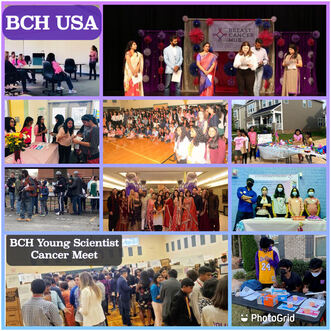 Interview and words by Rinki Saha Edited by Laurie Herviou and Lucie Yammine How is BCH spreading awareness in the US & India? Well, to be transparent with you here, in the US, we do not provide financial support. Rather I try to visit shelters to do screening and direct patients towards a care facility where they can get a free mammogram and treatments if needed. In terms of outreach programs in the US, our organization primarily focuses more on dense tissue complications in the detection of breast cancer, but also on the occurrence of breast cancer in men and cancer prevention. I am conducting global virtual seminars and ‘outreaches & awareness’ sessions in various communities in the US. Our Chapter Directors are getting involved in various community outreach. You can read about it here. We also recruit school student volunteers, conduct mentoring workshops, and make them BCH ambassadors. Those student volunteers organize outreach events and speak about the early occurrence of breast cancer and preventative measures in the outreach program within their network or neighborhood. Therefore, the volunteers not only deliver a service to their community but also can acquire leadership skills. I also conduct Young Scientist Cancer Meet and mentor students to help with their career and inculcate the art of scientific thinking & thought leadership. BCH Scientific writers is another program where I mentor the students to write research articles on different topics of breast cancer or other types of cancer, bringing into limelight the scenario not only in the developed but also in the developing countries. We are about to publish 18 articles on breast cancer by BCH scientific writers this year on our website. In 2018 & 2019 in India, I have conducted in person more than 140 outreaches covering cities, towns, villages, tea-gardens, hospitals, colleges, universities, research centers in urban and rural sectors. I am thankful to our collaborators who helped organizing these sessions. During the screening outreaches, I usually share my contacts with anyone with concerns and I guide all suspected cases towards the healthcare system, I provide scientific counseling, education, advocacy & treatment aid when needed, with proper followups. You can read more about it here. Besides, I am mentoring our BCH India ambassadors & we are building lifesaving Early Detection Cards for all types of cancer. We produced Breast Self-Exam Cards for both women & men in 20 different local languages, and the translation was done with the help of our worldwide BCH Ambassadors. Join us in two weeks to learn more about the long-term mission of Dr. Lopamudra Das Roy about this non-profit organization. 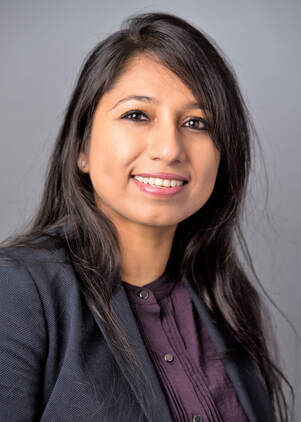 Interview and words by Rinki Saha Edited by Laurie Herviou and Lucie Yammine ‘Success is a journey, not a destination’ – Meet Dr. Lopamudra Das Roy who started her career as a cancer research scientist, later diverted her path, and founded a non-profit organization called Breast Cancer Hub (BCH). She gave a motivating interview to INetNYC about her novel cause of breast cancer awareness. Her story is a perfect example of how the journey can change the destination and how you can leave everything behind to devote your life to cancer patients. Let’s hear about her incredibly fascinating journey. Lopamudra, can you tell us about your background? I was born in Assam, the North-Eastern part of India. Since my childhood, I was always inspired by my father who was an eminent pediatrician and I wanted to achieve a career in the field of healthcare. I earned my Ph.D. in Genetics from Assam University, India in 2007. Later I did a Postdoctoral Fellowship in cancer immunology & metastasis focusing on breast & pancreatic cancer at the Mayo Clinic College of Medicine. After this training, I joined the University of North Carolina at Charlotte (UNCC) as a Cancer Scientist and Research Professor. I was awarded grants as Principal Investigator from the Department of Defense cancer research program & National Cancer Institute to investigate targeted therapies and signaling pathways in metastatic breast and pancreatic cancer. I also received my MBA from Northwestern University – Kellogg School of Management. In brief, my scientific career was more than a decade in the making and I was later working as an adjunct Associate Professor at UNCC and Research Director at OncoTab, Inc; Cancer Diagnostics & Therapeutics, a UNCC spin-off. What motivated you to create this non-profit organization? Over the years I witnessed the real-time suffering of cancer patients and how breast cancer can ruin one family in just a few months if not detected early. I realized that there is a huge lack of awareness regarding breast cancer even here in the US and I already knew the situation in India where nobody wanted to talk about breast cancer and there was a huge taboo behind it. In my mind, I could already imagine long-term sustainable plans which can bridge this awareness gap and help millions of cancer patients lives and their family. During my time at Kellogg, I pitched my long-term dream project of how to merge breast cancer awareness in the developing and developed world. The idea was well appreciated and also, I got some kind of confirmation that this plan could materialize. Finally, in 2017 I decided to change the direction of my science career and invest all my effort and time to serve as a volunteer for the awareness program for breast cancer and formed a non-profit organization named Breast Cancer Hub. My decision to leave my research and start this foundation was because I knew from the beginning that it’s going to be a full-time involvement and I would never be able to devote my entire effort if I have continued in my scientist position. To start with, I did an online survey to see how awareness stands in both developed and developing countries. The survey was an eye-opener and indicated that irrespective of socio-economic conditions & education, women are reluctant to take breast health seriously. The survey also revealed that people are not at all aware of many crucial facts about breast cancer, such as
Worldwide lot of women are not going for breast cancer screening even after 40 years of age as there is a misconception that it can only be genetic, so they do not have to worry if it doesn’t run in their family. This survey helped me build the statistics of the current awareness status and provided me the rock-solid thought process to proceed to the next steps. The overarching mission of this organization is to organize health care programs, sustainable goals of helping cancer patients across developed and developing countries. 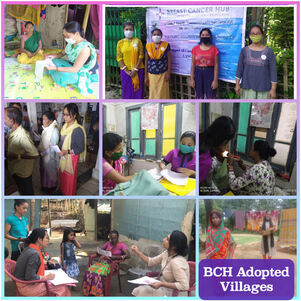 How can a mammogram miss the existence of Breast Cancer? Because some of the women have very dense breast tissue made up of fibro glandular tissue, the current mammogram resolution makes it difficult to pick up the cancer cells. For those women, breast ultrasound and other additional tests can help detect cancer. Because of this misdiagnosis, many patients remain untreated. You can read more about this issue here. Would you please elaborate on this village adoption program? We adopted villages to penetrate deeper, going to each member, each household, maintaining database & follow-ups, for cancer screening, treatment, management, palliative care & epidemiological research study. We take accountability for each patient. During that process, if we find someone who is suffering, we immediately take the suspected cases to the local cancer hospital for further diagnosis, treatment, and provide end to end support. We focus on breast, oral (anti-tobacco campaign), cervical as well as other types of cancers. We provide them with all the economic and mental support. You can read more about village adoption here. I am also very glad to say that many organizations in India, Indonesia, and Africa are now reaching out to us for collaboration or guidance to replicate this village adoption model for their community work. Join Us in two weeks to hear more from Dr. Lopamudra Das Roy about how BCH organizes its awareness program across the world. H H Words by Matteo Tardelli Edited by Laurie Herviou & Ipshita Zutshi Let’s face it! As Scientists in academia and PhD holders we are often very bad at marketing ourselves with prospective bosses or recruiters. Here’s where Linkedin comes in handy. LinkedIn is generally a medium rarely utilized by PhDs, who prefer instead to create a ResearchGate profile. However, although the latter is useful to get stats, readers and citations on your work, it does not help much if you are seeking a new employment. Do you not have LinkedIn yet? Here are some tips on how to build a successful LinkedIn profile for Scientists and hopefully to get recruiters to find you:
I know this takes time and effort, but you’ll notice the difference in the first weeks if done right as people tend to interact with you more and more. My profile is far from being great, I must say, but by listening to experts, attending seminars and career fairs (often organized by INet-NYC) - you can slowly get an idea on how to work best with it. Here are some additional resources you might find useful. Words by Ipshita Zutshi Edited by Laurie Herviou & Conchi Izquierdo Climate change, deadly pandemics and diseases - the argument is often made that the world now, more than ever, is in dire need of scientifically-driven policy making strategies. While true, we would argue that the world has always needed science diplomacy, and moreover, there have always been highly talented professionals navigating these uncharted waters of what we now call science diplomacy. With an increasing push to standardize this profession to make it a more linear path, INet NYC organized a career development panel discussion on Monday, May 18th, 2020, called “Science Diplomacy: how one can foster the other?”. The event was spearheaded by INet NYC board member Laurie Herviou, a postdoctoral researcher at Memorial Sloan Kettering Cancer Center, and brilliantly moderated by Alessandro Allegra. The invited panelists included Dr Alicia Pérez-Porro, Dr Lorenzo Melchor, Dr Melania Guerra, Dr Jean-Christophe Mauduit, Dr Marga Gual Soler, and Dr Jessica Tome Garcia (Detailed bios for each of the panelists are provided at the bottom of this article). The outcome of their efforts is a goldmine of information for opportunities to transition to a career in science diplomacy. We hope that you can walk away (or rather, scroll away) having learnt a little more about this truly exciting profession. You can also watch the full video of the discussion here - https://www.youtube.com/watch?v=ux25ANzPm1c. We used the transcript of the panel discussion to generate a word cloud of the most commonly used terms during the discussion (using www.wordclouds.com). Check out the buzzwords in this field!
So what is science diplomacy? As Alessandro perfectly summarized, “science diplomacy is an umbrella-term that means different things to different people”. He explained that those pursuing science diplomacy often are “hybrid creatures'' of sorts, developing multiple skills and juggling various responsibilities. They hail from various backgrounds, often starting off as scientists, diplomats or social scientists, and perhaps because of this diversity, the very definition of science diplomacy is quite amorphous. Broadly however, all our panelists defined science diplomacy as the interactive medium by which academia, governments, international institutions, private companies, NGOs and regional organizations all connect using science as the common language. As for why the world needs science diplomacy, we highly resonate with the opinion voiced by Jessica, “I don't understand global development without science. I don't understand sustainable development without science. And I don't understand governments without scientists in their parliaments.” What motivated you to pursue science diplomacy? The most consistent drive towards a career in science diplomacy was the general feeling of being “trapped in academia”. For almost all the panelists, there came a turning point in their career, either at the end of their PhDs, or during their post-doc, where they began to question the impact of the work they do - “I felt I was staring into the wall of a cave without being totally aware of how vast the world is”, or “I didn’t want to spend my time in front of a microscope in a dark room alone”, were some phrases heard. Some of the panelists such as Alicia and Melanie described their turning points as “Aha!” moments where certain experiences made everything click for them (Admittedly, their jaw-dropping experiences in Antarctica or in the Bering Strait certainly sounded Aha-worthy). Other panelists such as JC and Lorenzo described this process as a more gradual process of self-discovery, from a course taken, or exposure through volunteering at an organization, that slowly shaped their path. How did you start your career in science diplomacy? Given how diverse and multi-faceted the field of science diplomacy is, it is perhaps unsurprising that the paths taken by our panelists were equally varied. For most of our panelists, fellowships (most of them UN-based fellowships), Royal Societies, workshops and field trips acted as the first steps to transitioning to a career in science diplomacy (For a comprehensive list of these fellowships, scroll down to the ‘useful links and resources section’). Almost all panelists also highlighted the role of mentors in this process, where often finding the right mentor is the first step towards learning how to make this transition. A crucial point raised by Alessandro, JC and Marga, is that this process is not necessarily always linear. It sometimes becomes necessary to take a few steps back, to pursue a masters degree, or an unpaid internship, after already having received a PhD. In fact almost all our panelists went on to complete their master’s degrees in policy after their PhDs, because those programs would give them the necessary visibility and knowledge of the international framework. All the panelists stressed however, that these temporary pauses should not be looked at as setbacks, and that these courses are well worth the extra time. Furthermore, there are now greater efforts to make this career path more linear with more streamlined courses and trajectories available. Given the variety of trajectories one can take to transition, we understand that decision for the ‘right’ path can seem quite overwhelming. Here, we hope that JC’s advice may provide some respite, “It is important to remember that there is no one skill, or one clear educational pathway or trajectory to follow. The field is constantly being defined, and the way to teach knowledge and skills will also continue to be shaped and refined in the coming years.” What skills help for a successful career in science diplomacy? Perhaps the most common advice given by our panelists was to cultivate the ability to communicate. As Melanie rightly said, “If you have the ability of simplifying the science, dealing with the uncertainty around predictions, and maneuvering them into something that can actually lead to action for the policymakers, that is one of the biggest strengths that you can have.” This advice was backed up by Lorenzo who also recommended that one must have, “Entrepreneurship creativity and the ability to multitask because you’ll have to develop quite a lot of projects at once”. Our panelists also recommended developing “soft-skills”. As Jessica mentioned, “It is very important to never underestimate a person and instead try to understand what their culture and passion is and always have an open mind.” Similar opinions were voiced by Marga who told us, “In this field, it is not only important what you know, but also how you say it and whether you respect protocol and know that there’s an order and hierarchy that must be followed.” Resilience was another skill that our panelists repeatedly recommended. As Jessica described, “There are many many skills needed, some of which we have already gained as a scientist because we think and we learn how to be resilient.” This rang soundly with Alicia’s advice - “It is very useful to be able to leave your comfort zone and feel comfortable being uncomfortable”, Alicia also mentioned that her ability to connect things that people don't see the connection between - a scientific paper, an international policy, a local NGO, and to find ways to bring these seemingly different things together has paid off really well in this profession. What if I’m not ready to transition to a career in science diplomacy? We understand that many of our readers care deeply about science diplomacy, and want to look for ways to contribute without completely switching career paths at this moment. We’d like to highlight a key point made by Lorenzo, “You can keep doing research but with a different mindset that your research needs to have some kind of impact at the policy or diplomacy level. To do that you engage in specific meetings, have different international conferences, or different policy gatherings to provide your scientific expertise so that science has an impact in policy and diplomacy.” Several organizations such as the Royal Society, Sense about Science, Campaign for Science and Engineering, and professional societies or networks (Psst...INet-NYC is looking for volunteers) are ideal platforms to engage with science diplomacy as an active researcher. Needless to say, keep engaging with us and our panelists on Twitter, Instagram and Linkedin, and keep the conversation going! We would like to end with the inspiring advice given by Alicia, “when in doubt, just keep swimming”. It may seem like a daunting task but if you stay focused and take things one step at a time, you are sure to achieve success and find a way to navigate these waters. Useful links and resources: Words by Vacha Patel
Edited by Ipshita Zutshi INET NYC hosted a formal roundtable discussion and networking reception, “Non-academic career tracks for International scientists” on November 13th, 2018, at the New Science building, NYU. The room had ten round tables, each with an assigned mentor of specific career expertise. The attendees could sign up for three out of nine available topics, allowing them to rotate around tables and meet three different mentors for 20 minutes each. We are indebted to our star mentors who made time from their busy schedule and graced us with their presence, knowledge and shared with our audience their insights. Thomas Clozel at the Entrepreneurship/Data Science table, an international scientist from France, is the CEO and co-founder of Owkin, a company that integrates AI with medical research; also, the first to be backed by Google. Clozel is a Doctor and was an assistant professor in clinical hematology. He enlightened his audience with counsel on the transition from academia, guidance on entrepreneurship and an informal discourse on how to start a company from scratch. Jan Philipp Balthasar Müller at the Data Science table an international scientist from Germany is a physicist by training, with an insightful sense of white-collar independence. By various means like freelancing, he has been self-reliant since his graduation. He’s waiting on his green card through the national waiver program, a topic of great interest in the audience. Vesna Tosic at the Finance/Equity Research/Investor Relations table an international scientist from Serbia, got a Ph.D. from the USA in immunology. Tosic at Regeneron Pharmaceuticals, is responsible for the investors' relations while divergently talking to the wall street. Being an international STEM graduate student, she is familiar with the struggles faced by a similar crowd and happily talked about it. Sloka Iyengar at the Science communications table an international scientist from India has done work in research, consulting, science writing and teaching. Iyenger is currently a medical director at Phase Five Communications and she also teaches medical communications at NYU and an online course for educators, ‘Seminars on science’ at the American Museum of Natural History. On being asked by an interested audience how she got the job at the museum, she casually said, “because I know people.” Just again demonstrating the virtues of networking. Matthew Cotter at the Pharma table, an international scientist from the U.K. accomplished his Ph.D. internationally, moved to Canada for a post-doc and then the USA earning two other postdocs. He has been working with Pfizer, a research-based biopharmaceutical company for the past ten years. After spending a fair amount of time as a medical director in oncology, his tenure extended to the position of a senior medical director of global medical affairs. He explored further on the transition to pharma industry and green card opportunities. Upal Basu Roy at the Non-profit table, an international scientist from India is the sui generis from non-profit, has a one-off trajectory with Ph.D., Postdoc at NYU and a master’s in Public health. His work has given him the opportunities to work with a diverse range of people from academia, Pharma industry to the US Food and Drugs Administration (FDA). Christy Kuo at the Pharma table, an international scientist from Taiwan, with insightful subjectivity on J1 visa affairs and J1 waivers transfiguring to green card opportunities. Kuo has a Ph.D. at Weill Cornell University and later pursued a postdoc at Memorial Sloan Kettering Cancer Center. She is now a senior scientist at Pfizer. Valentina Schneeberger at the Consulting table is a life science consultant, who explained the elemental brass tacks of consulting. Her academic narrative is a Ph.D. in cancer biology and postdoc at Sloan Kettering cancer center. Schneeberger’s take on this profession is that, “Consulting is a good way to get to another place if you are not quite sure what to do.” She evinces of at least two speakers whose careers were aided by the patronage of consulting. Prakrit Jena at the Entrepreneurship table, an international scientist from India, is a CEO and co-founder of a fast-growing company, LipidSense. Jena’s transition from a postdoc at the Sloan Kettering is a pioneering descriptive essay about a lipid sensor they made. He duly credits his success to the Elab NYC program, funded by New York City for biotech startups. His word to the wise for startups is the importance of board members and/or mentors who are also CEO's of at least two companies. Yukie Takabatake at the Biotech table an international scientist from Japan, has a Ph.D. in cancer biology and postdoc from Mount Sinai. Takabatake is currently a principal scientist at MouSensor, Inc. Being an international scientist and now a green card holder, she hustled into the tangled realm of visa issues bagging a room full of affirmative nods. On the one hand, as different origins, nationalities, and cultures, these mentors have experiences and backgrounds worlds apart. On the other hand, they had worlds in common through their struggles, challenges, in a country and city that’s grim, relentless yet magnificent, vivid, divine. Hence keep watching this space for more events by us, for New York City is full of opportunities and it’s all about being in the right place at the right time. |
Archives
November 2024
Categories
All
|
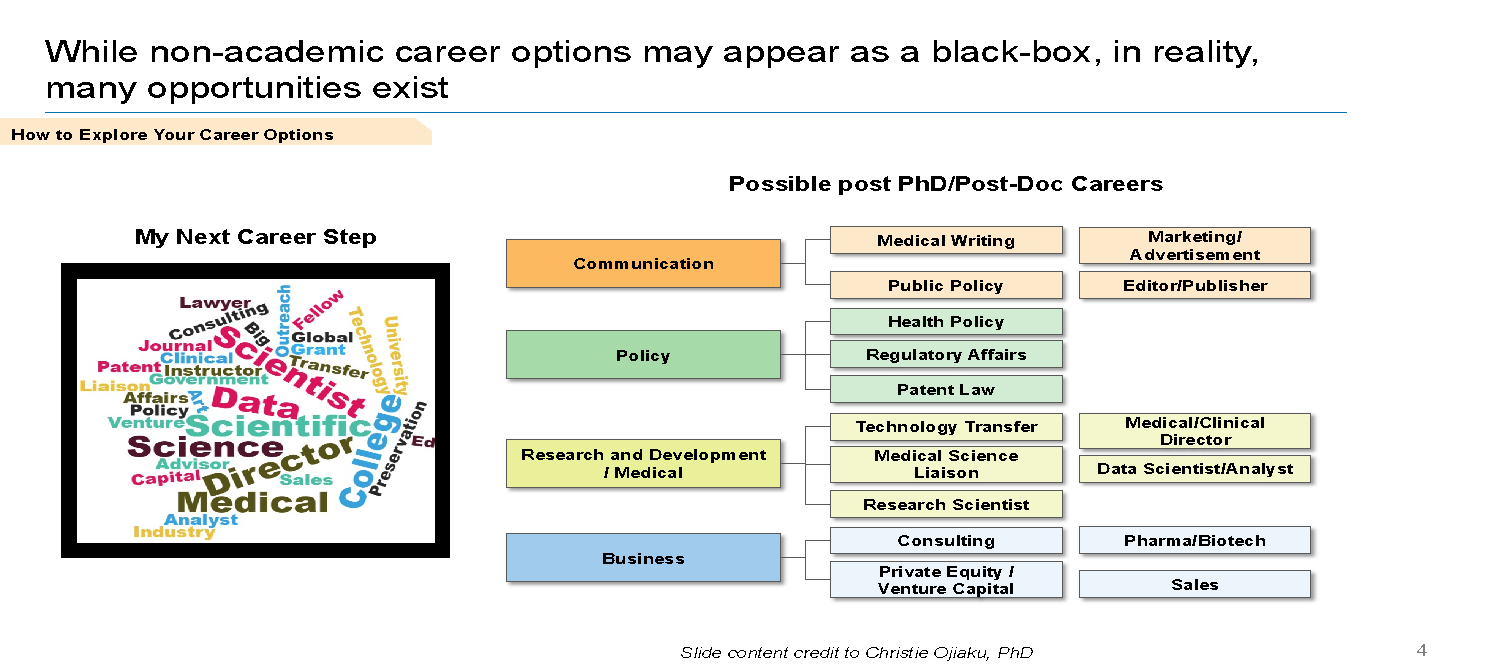
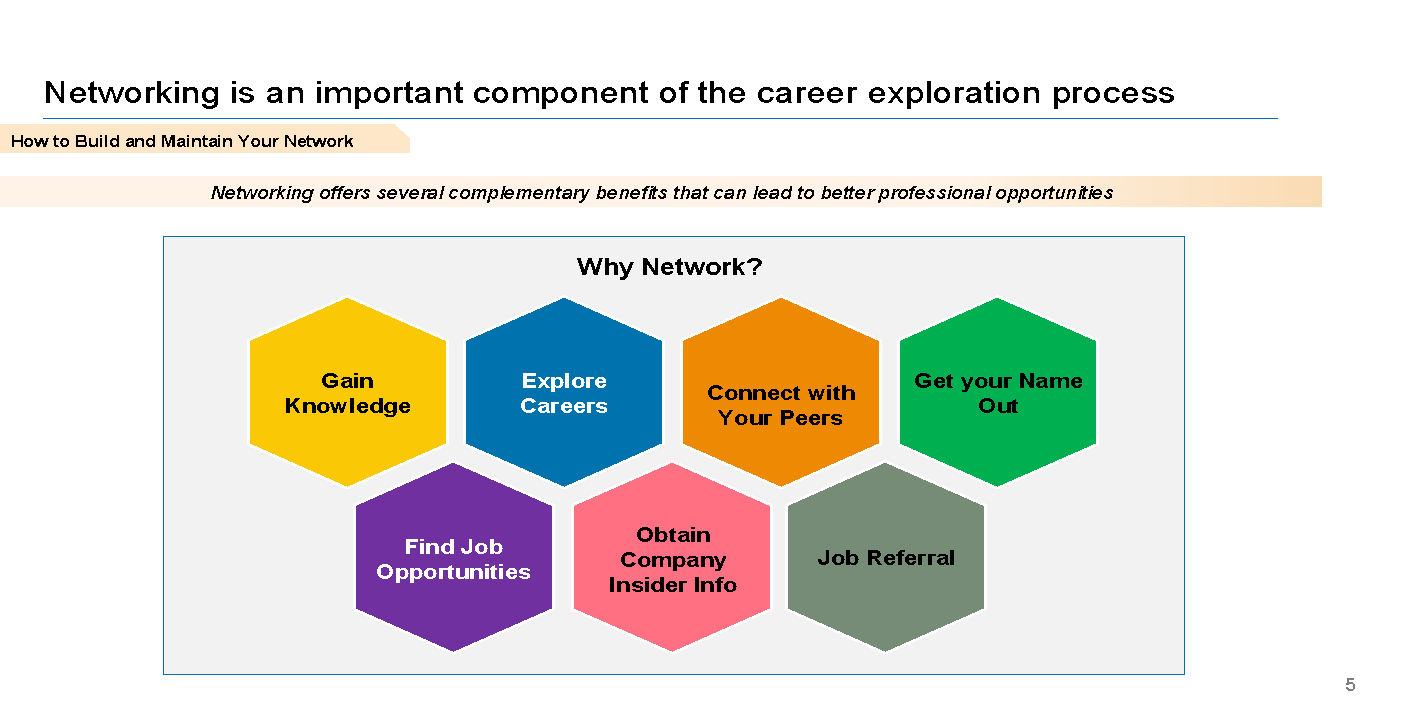
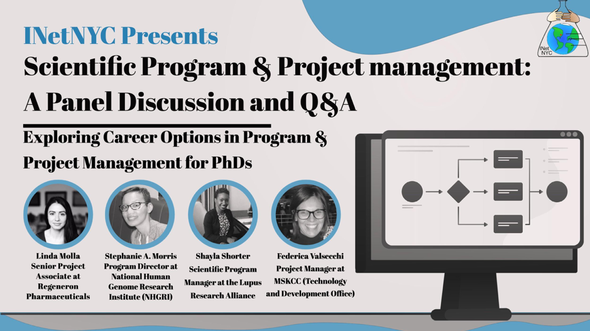
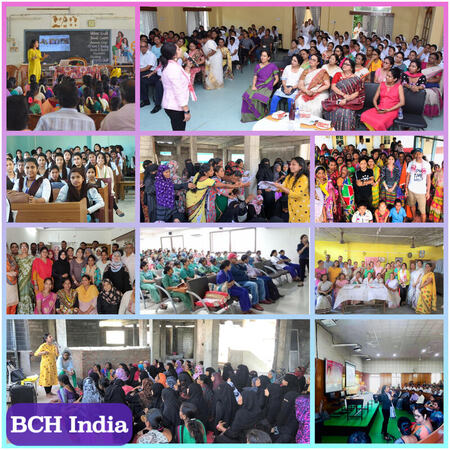
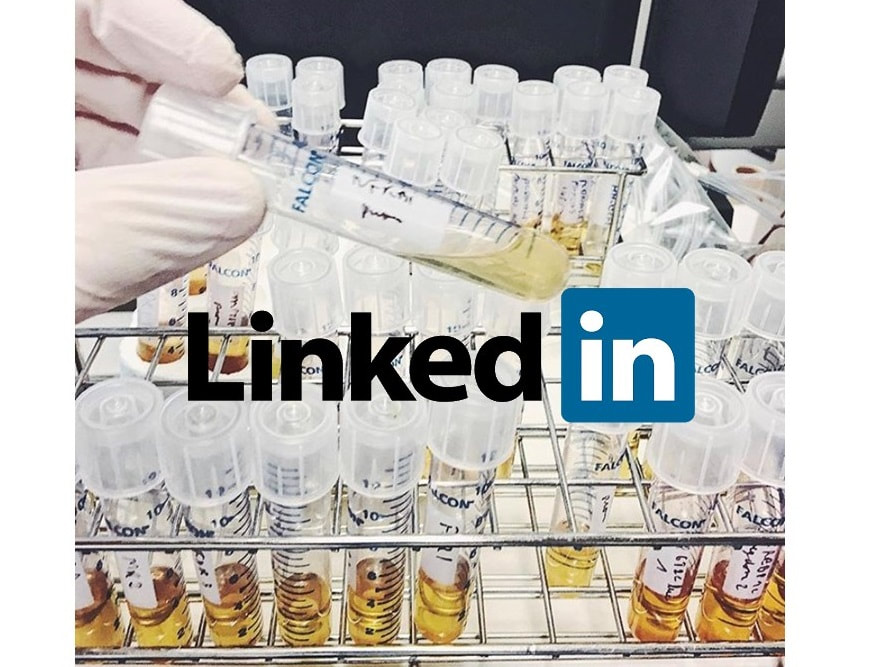
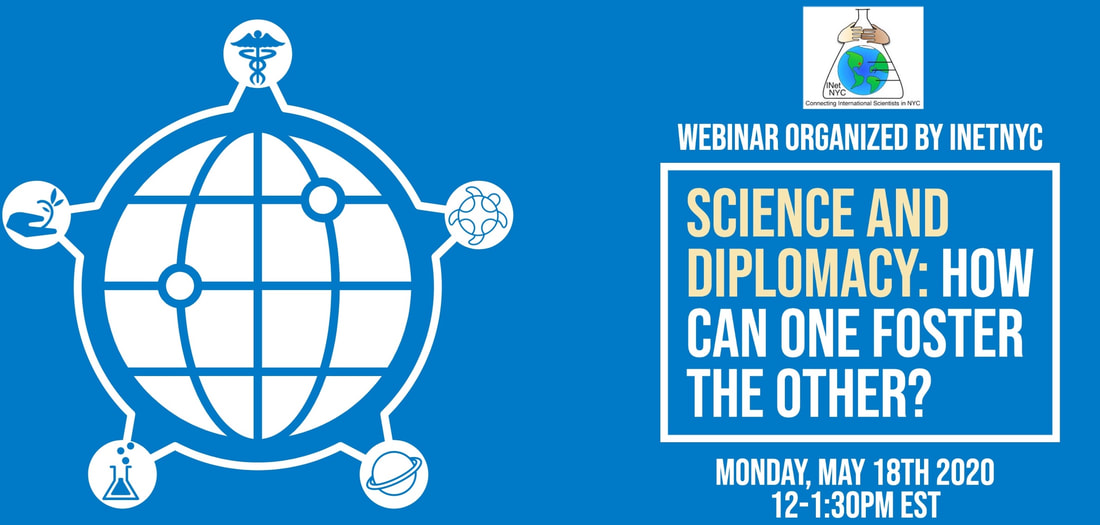
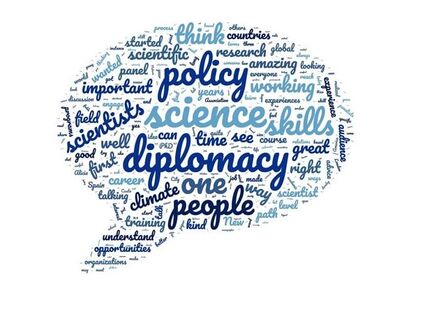
 RSS Feed
RSS Feed